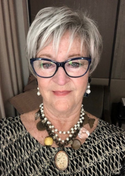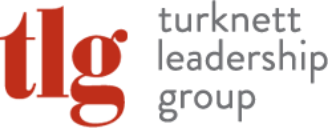
By Susan Hitchcock
Founder & Host Emerita of Women in Leadership
With over five decades of work experience, multiple leadership roles, as well as two full-time, very different careers now completed, I’ve learned a lot and I’ve “earned my spurs.” Perhaps it’s worth sharing a personal perspective on how work and life have changed, including a few key points for anyone trying to manage their own career or lead a constantly evolving workforce.
A View from the Past
I began my career in the late 60s and was fortunate to land my first management position right out of college with a large corporation (Ma Bell actually). There were fantastic training programs, multiple departments and entry points, well-equipped offices to work in, and generous benefits including 401Ks, pensions, and retirement plans. What a deal! Just get to work and you were set for life, right?
Well, not exactly. There were numerous unforeseen challenges as my career unfolded, e.g., anti-trust suits and divestiture (the breakup of the Bell System); mega mergers and acquisitions; new markets, new competition; and of course, leadership transitions and economic ups and downs. One economic downturn resulted in a major downsizing initiative within the company. That led to the first “early retirement” offer ever made – an offer I didn’t anticipate but decided to take advantage of. More about this later.
During my tenure at BellSouth, there was also another very real obstacle to overcome: the lack of advancement opportunities for women beyond middle management. When I joined the company, there were zero women in the C-Suite and that didn’t change for a long time. Unfortunately, upward mobility for women and minorities in many public companies required federal government oversight and quotas (via the EEOC) for progress to begin. While some may have benefited from this short-term intervention, I was thrilled to see it dissolved. I wanted to compete with my male colleagues (albeit on a level playing field) and progress on my own performance.
Overall, a general description of my early corporate days might be “head down, working hard with a sense of loyalty and commitment to the company, our customers, and my teams.” The company was, for the most part, in charge of my work life which in turn had a major impact on the rest of my life (family time, community engagement, etc.) There was also a prevailing top-down, hierarchical management structure that set objectives and expectations and ultimately, determined how work was done. Flexible work arrangements, not in vogue.
First Career: Lessons Learned
Adaptability: For me, this was key to having a successful corporate career. Being open and willing to change made a difference. I accepted new assignments and new roles even when I wasn’t prepared or wasn’t sure it was the right fit. But I learned from every experience and added organizational knowledge – plus a new skill set along the way.
Confidence: With each risk taken, challenge overcome, and result achieved, my confidence grew. But my priority was always to give credit to my teams who were responsible for our success and to make sure they had opportunities to develop. I refused to hold someone back from a career opportunity, be it a lateral move or a promotion.
Finding Value: What truly motivated me was not money or titles, but defining success for myself; being authentic as a leader even when my style was not in line with my peers; being an ally and supporter of other women; and above all else, maintaining my integrity, being honest with employees, customers, and results, etc. I also looked for purpose in what I was doing; however, compared to today’s professionals who openly pursue purpose as well as profit, my efforts were minimal.
Moving on: Unexpected Second Career
In the current environment, many professionals – and certainly the younger generations – don’t think in terms of “one career or one company for life.” However, that was a typical mindset in my early career.
In 1991, when everyone in BellSouth management with more than 20 years of service was given a compelling early retirement option, several thousand managers had a shift in mindset. For me and my family, it was an extremely difficult decision. Nevertheless, I accepted the offer, took a leap of faith, and exited the corporation in December 1991. My plan was to enroll in a Ph.D. program at Georgia State in psychology or counseling and start a whole new career.
While I was ready to start that new path, a completely unexpected opportunity presented itself. My former boss at BellSouth introduced me to Lyn and Bob Turknett (founders of Turknett Leadership Group/TLG that we know today). That simple first meeting with Lyn and Bob would significantly influence my life and set a whole new career in motion. Equally important, it established a highly respected and mutually beneficial long-term relationship, both business and personal. The business relationship grew exponentially and has “morphed” through various stages, lasting over 30 years – to this day. And the personal relationship, well it’s strong as ever.
Second Career: Lessons Learned
Step out of your comfort zone: Stepping into a small consulting business environment was a total shift from my corporate, highly technical environment. But my passion for leadership development (with a personal focus on women’s leadership and advancement) and my desire to learn from the Turknetts, grow the business, and help companies develop leaders at all levels turned into an extremely rewarding journey. It has been a journey I could not have imagined.
Netweaving and networking: Over the years with TLG, I increased my network dramatically, but I prefer to “netweave.” Bob Littell is known as the Chief Netweaver and he coined the term and created a movement around it. Bob says, “What goes around, comes around.” I found that to be true and it also fits my personality. By helping others achieve their goals and making meaningful connections for them, I often received reciprocal connections, many of which led to new business opportunities as well. It also seemed like “the Turknett Way.”
Positivity and life-long learning: When you love what you do, feel valued and add value, work is not really work. It’s a part of life that you feel good about every day. This was certainly my TLG experience; therefore, it wasn’t that hard to remain positive, even in tough times that occur in any career or business. I also had the benefit of seeing life-long learning in action as Lyn and Bob set that bar very high. There’s always something new in the field of leadership as in any field and striving for excellence for your clients means doing your research and adapting to what’s happening in the marketplace and the workplace, as well as in the external environment.
Life: Chapter Three
Yes, there actually is life after two full careers and it’s not retirement. I prefer to call it “my time of 100% flexibility.” I’m free to spend more time with family and friends and to make choices on what and how much professional or community engagement I have. That includes serving on TLG’s Advisory Board, and mentoring young(er) professional women (e.g., Agnes Scott students, graduates, and others). It also includes continuing my Age of SHEroes project which I began in 2000 (interviewing and profiling inspiring women of different generations.)
So now that I’ve shared some of my career and life journey, including the transitions and pivots, lessons learned, etc., I trust that some of my insights may be helpful as you continue your own journey. Let me add just a few more thoughts before concluding.
A Little Wisdom and Advice for now and Beyond
New ways of working and communicating: Technology, the pandemic, and other factors have brought about new ways of working. To me, there are pros and cons to every option both for individuals, employers, and leaders. Whether all options are on the table at any given time, i.e., remote, hybrid, or in-office work, things are going to change, and flexibility is essential. Managers and leaders must listen to and respect their employees’ needs and preferences while maintaining a laser focus on business needs, customer and client expectations, etc. Individuals/professionals also need to listen to and respect their managers and leaders. Neither the employer nor the individual is or can be “totally in control” anymore. Instead, a balance is called for.
Short-term and long-term focus: We all know that it’s possible to have a career as a nomad – to move from place to place, job to job. But the question is – what are the advantages and disadvantages? Don’t underestimate the value of forming longer-term relationships when you stay in one place for a period of time. Making a short-term decision to “jump ship” for what appears to be a greener pasture (i.e., compensation, culture, etc.) can backfire. On the other hand, if you aren’t being challenged, valued, and appropriately compensated where you are, then staying for the long term doesn’t seem right. Just evaluate the pros and cons for yourself and don’t just follow the crowd or the current trend.
Know yourself: As you navigate your life and your career, it’s truly important to be very self-aware and that isn’t the same from early life to a more seasoned stage. What you really want is to be in a work environment that supports your overall well-being – mind, and body for sure, and maybe spirit as well.
Intergenerational interdependence: There are and will continue to be several generations in most if not all work environments. Recognizing and appreciating what each brings to the table can be a game changer. The young(er) generations are typically technology wizards and are early adapters to that type of change. But they don’t have the benefit of deep experience, learning from the past, etc. Going forward, cross-generational knowledge and experience sharing can and should create greater allyship and sponsorship. Mentoring between generations is best experienced when both learn from the other.
Finally, I look forward to seeing what’s next and don’t mind saying, I’m excited about what’s to come in life and work beyond 2022. I hope you are, too.
SusanHitchcock@turknett.com 770-270-1723
